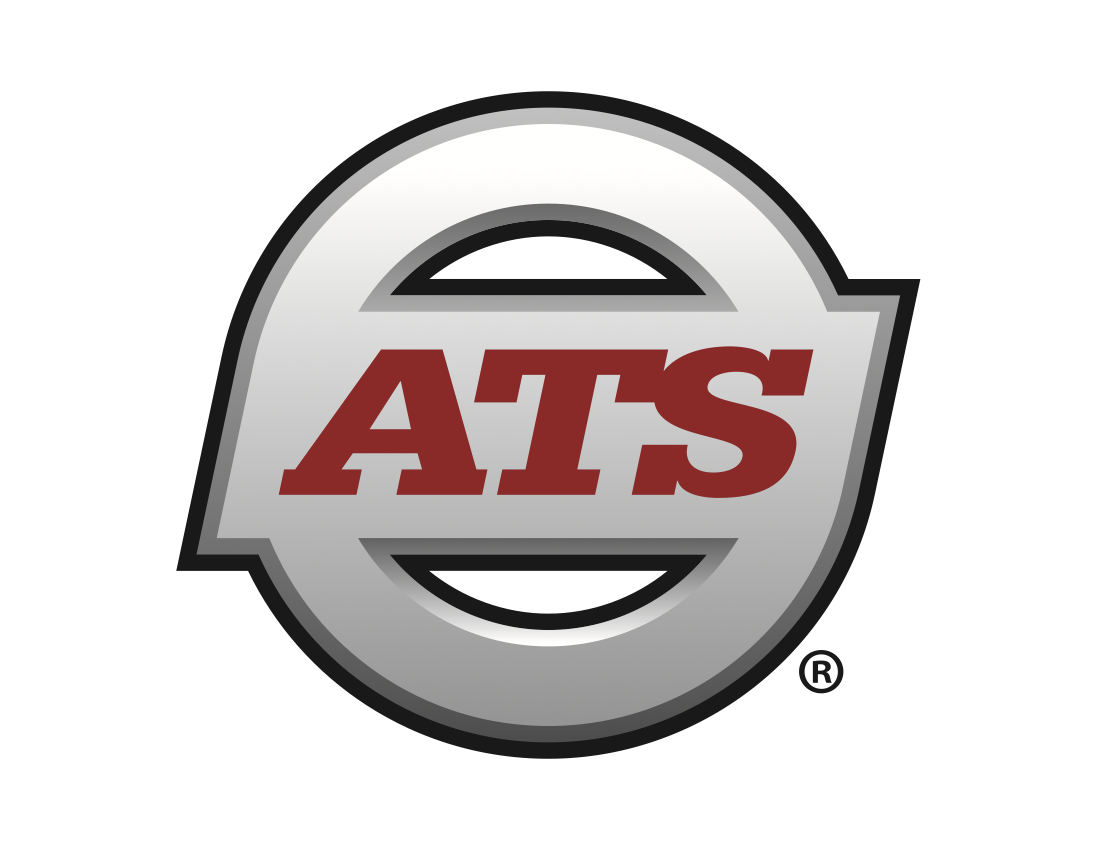Understanding Truck Driver Health Requirements + Truck Driver Health Tips
Health is important for everyone, but for some workers, your physical and mental health is crucial to your success on the job. As a truck driver, you fall under that category.
As you know, truck drivers operate heavy machinery around the motoring public. If something should happen to you, some sort of health emergency behind the wheel, it could have a huge impact on the people on the road around you. It’s okay if you have health conditions — many of us do — but as a truck driver, the key is to manage them so you can safely be on the roads.
Everywhere you look, you’re encouraged to try out the latest health hack — whether you’re watching a commercial, seeing an ad on social media or paying for groceries and sneaking a peek at the magazine stands. But how do you cut through the noise to find out what’s just a trend and what’s actually good for you? As a truck driver, what can you do to maintain your health?
I’m a doctor here at CentraCare, a health system including hospitals, clinics and long-term care facilities throughout Central Minnesota. A family medicine doctor for more than 30 years, I’ve recently moved to practicing solely occupational health. I spend my time doing physicals for pilots and commercial truck drivers. I know exactly what doctors are looking for when doing Department of Transportation (DOT) physicals because I both perform them and oversee a team that does them. I’ll help you understand why it’s so important for you to manage your health.
When you’re finished reading, you’ll have some actionable steps you can take to either improve your health, start managing your medical conditions or continue to maintain your good health. You’ll also know what to expect — from a doctor’s perspective — going into your next DOT physical.
The Importance of Truck Driver Health
Truck driver health, first and foremost, is important because we want drivers to be as healthy as possible and to live prosperous lives. You hold an important job and quite literally keep the world moving.
Truck driver health is also important for public safety. We want to ensure the public is safe around you when you’re operating very heavy big rigs. Some kind of unknown medical problem occurring behind the wheel could jeopardize the health of others. That’s why you need regular physical examinations and you have to drive with an active medical card given to you by a certified medical examiner.
To get a medical card, you have to schedule an appointment with a medical examiner who’s trained and certified to do DOT physicals specifically. You can get a medical card that’s good for up to two years.
However, many doctors, such as myself, are only giving out one-year certificates nowadays because many drivers are managing medical conditions. Because of that, we’d like to see those drivers more often to ensure they’re doing the things they need to do to stay healthy and safe on the road.

Truck Driver Health Requirements
There are a few physical requirements you must meet to drive. Primarily, we look at vision, hearing and potential risk factors for disease. If you have to use a hearing aid to meet the requirements, that’s fine. If you need glasses to correct your vision, that’s fine. If you need medication to control your blood pressure, that’s fine too.
We test you to see if you have certain conditions that may pose a risk. We don't care if you've got high blood pressure. We do care if you've got it, and you're not treating it. That’s what medical examiners are looking for — to see that you’re managing your conditions. Managing your conditions is what decreases your risk of having issues on the road that we’d be concerned about.
Any risk factors that could lead to things like heart disease, stroke, diabetes or other conditions should be addressed.
I encourage drivers like you to see your primary care doctor regularly in addition to your DOT physical. Be proactive with your health so that risk factors can be identified and treated ahead of time. That way, you’re taking care of yourself and ensuring there’s no delay in receiving your medical card.
Health Conditions You Can’t Drive With
Unfortunately, there are some specific medical conditions and physical limitations that would disqualify drivers from being able to safely operate a big rig. Primarily, it’s conditions or medications that make you drowsy or could cause you to have a seizure while driving (like narcolepsy).
There are some things that we’re particularly concerned about. We look at these things on a case-by-case basis. For example, some medications could cause drowsiness but not with someone taking them long-term.
We just need to know what medication is being used as prescribed, and that you’re not having side effects that we would be concerned about.
Preparing for a DOT Physical
To prepare for a DOT physical, you need to know your past medical history. Make sure you have information about any particular medical problems you currently have or have been treated for. That includes information about any medications you’re on to manage the condition, your diagnosis and treatment plan and a list of the doctors who are treating you.
We’ll review this information and your full medical history at the time of your exam to ensure your conditions won’t impair your ability to be behind the wheel.
You must disclose your full medical history. If you have a health issue and you’re not disclosing it, chances are we’ll find it either in your medical history, tests or physical exam. As doctors, we want to certify you and give you a medical card, but we can’t if we don’t have all the pertinent information.
If you sign the medical form that gives you a medical card, you’re certifying that you’re being truthful about your medical history. You can get into trouble with the federal government if you lie on your application — especially if you end up causing an accident because of a medical condition.
I understand the urge to not disclose information. You just want to be able to drive; it’s how you support yourself and your family. You might be worried if you disclose certain health information that you won’t be able to drive. Here’s the thing: A lot of conditions can be managed. We can manage diabetes, high blood pressure and sleep apnea. While some conditions may impair your ability to drive, a lot of conditions can be treated.
Be honest so that we can appropriately treat the symptoms and conditions that we need to and move forward with the medical certification process.
Other than having a comprehensive medical history with you, prepare for a typical physical.

Common Truck Driver Health Issues
Working long hours and living a sedentary lifestyle can put truck drivers at risk of developing health conditions like obesity, cardiovascular disease, sleep apnea, musculoskeletal problems, depression and diabetes. It’s important to understand any other risk factors you may have so you can address them.
Again, as doctors certifying you to keep driving, we care more about whether you’re treating your conditions than if you have them. If you’re not treating your conditions appropriately, you’re putting public safety at risk by driving commercially.
Truck Driver Health Tips
Knowing the risk factors you face for potential medical issues down the road, it’s important to do any little thing you can to mitigate your risks. All the small healthy behaviors can add up — from focusing on what you’re eating to prioritizing your mental health to enjoying some movement each day.
Tip #1: Make Time to Move and Stretch Throughout the Day
For starters, make sure you’re stopping off and on throughout the day to get out, move around and stretch. Don’t pee in a jug; stop at a rest area or truck stop and then take advantage of the bathroom break to walk around the parking lot.
Physical activity is crucial for health. Try to set aside some time during the day to get a little bit of exercise if you can. Maybe that means you get up an hour earlier each morning or you push back your dinner each night by 30 minutes.
If you’re struggling to set aside a chunk of time to exercise, consider that just a few minutes here and there throughout the day can really add up. You can start by walking for five or 10 minutes on each of your breaks throughout the day. Before you know it, you’ll have walked for 30 minutes by day’s end.
Depending on what type of freight you’re hauling, you may have a physically demanding job that requires you to unload/load freight and tarp and secure loads. You’re pounding tires, climbing up on tractors and throwing chains and tarps. Remember to make sure you’re using good body mechanics so you’re less likely to strain a muscle or break something.
Related: Truck driver exercise tips
Tip #2: Focus on Implementing a Healthy Diet
A proper diet is a big part of improving your health. I encourage drivers to do anything they can to balance their diet; small changes add up.
If you’re on the road for weeks at a time, pack a cooler full of washed and prepared fruits and vegetables. Pack healthy snacks like dried fruits, nuts and protein bars. Don’t rely on truckstop food; meal prep healthy meals when you’re at home and pack them in your cooler or refrigerator in your truck. Or, cook on the road each night.
Making small adjustments to your diet — one less soda, one extra serving of vegetables and whole grains — can have a significant impact on your health.

Tip #3: Prioritize Your Mental Health
Taking care of your mental health is just as important as prioritizing exercise and a healthy diet. Being on the road away from your core support structure can be difficult. On top of that, you have a very stressful job. Keeping your mind right is an important part of being a safe driver.
It can get lonely on the road, so bring reminders of your family with you. Simply looking at a picture or video of one of your children can help you overcome a stressful day and calm you down. Have your children and partner draw pictures or write notes that you can keep in the truck. Set up a regular time to touch base with your friends and family, too. It will help you maintain that connection.
Yoga, meditation, mindfulness and breathing techniques may be considered froufrou and unhelpful to some, but they actually go a long way in reducing stress. Taking just five minutes each day to meditate or focus on taking deep breaths can add up and make a big difference in stress management and your mental state.
If you’re really struggling with your mental health on the road — which isn’t uncommon for truck drivers — be sure you talk to your doctor for help. In times of dire need, your driver manager will also be able to direct you to emergency care.
Prioritize Your Safety on the Road
As truck drivers, you bear the responsibility of operating heavy vehicles on our roads, and the impact of a health emergency while behind the wheel can be severe. To maintain your health and safety on the road, it is imperative to understand and meet the health requirements necessary for your profession.
In addition to understanding the health requirements and the importance of managing your health, it's equally vital to take proactive steps to improve your well-being. A sedentary lifestyle and long hours on the road can lead to various health issues, including obesity, cardiovascular disease, sleep apnea and depression. Therefore, adopting healthy behaviors is crucial.
Incorporating regular movement and exercise into your routine, focusing on a healthy diet and prioritizing your mental health can have a significant impact on your overall well-being. Small, consistent changes in your daily habits can add up to substantial improvements in your health and safety as a truck driver.
Your commitment to both personal and public safety is paramount, and your health is a fundamental part of that commitment.
It’s also important to focus on your personal safety on the road — especially when you’re far from home. Check out these tips to keep you safe on the road.

